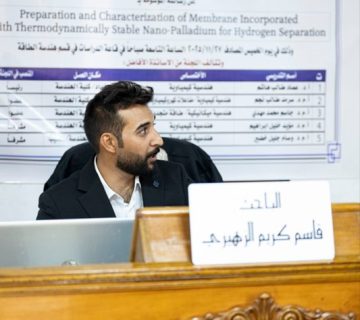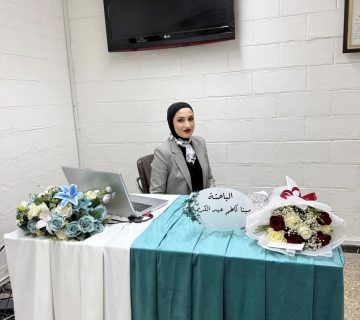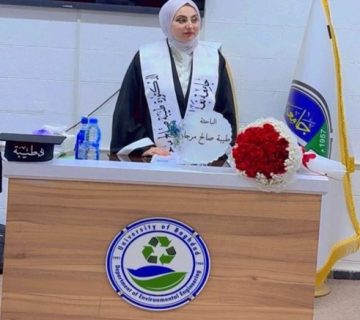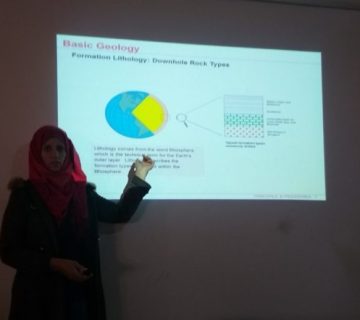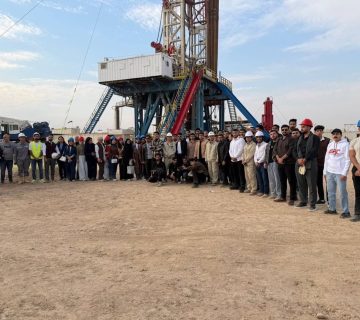The College of Engineering at the University of Baghdad witnessed the public defense of the master’s thesis by Zahraa Ali Jawad, a student in the Petroleum Engineering Department. Her thesis is titled:
” Optimization of Infill Oil Well Locations for Sadi Formation – Halfaya Oil Field” supervised by the esteemed Dr. Dhifaf Jaafar Sadeq.
The defense took place on Tuesday, September 10, 2024, in the Graduate Studies Hall of the Petroleum Engineering Department. The examination committee was composed of the following distinguished professors:
By the Zahraa Ali Jawad and supervised by Dr. Dhifaf Jaafar Sadeq. The examination committee consisted of Assist. Prof Dr. Farqad Ali Hadi as Chairman and the membership of Assist. Prof Dr. Dahlia A. Alobaidi and Dr. Ahmed Khalil Jaber. The thesis was summarized as follows:
An important objective of the oil industry in recent years has been to increase hydrocarbon recovery from tight reservoirs. As a crucial unconventional resource, tight oil reservoirs have attracted significant interest for exploration and production worldwide. To produce the hydrocarbon in place, new technology methods may be adapted. These methods may involve intuitive well placement design. Additionally, many conventional techniques have been utilized to optimize well placement operations. Therefore, the Sadi oil reservoir in the Halfaya oil field, which is considered as tight reservoir subjected to the application of an optimization technique for determining the optimum infill wells’ locations. This optimization problem includes well coordinates (decision variables), objective functions (NPV and Np), and constraints. The genetic algorithm was the optimization technique applied in this research. Different production scenarios were used in this research with a different number of infill wells for each scenario using Petrel/Eclipse software. These scenarios were formulated to define the optimum infill wells’ locations. The best scenario in maximum cumulative production, and the maximum net present value was (five infill well) that presented the best results were the last scenario, which forecasted Np about 13,505,050 STB and NPV about 6,034,090,100$. It also added a simple method (averaging method) for selecting wells and compared it with the infill scenarios based on the Genetic Algorithm. Our findings indicate that Genetic Algorithm gave better results in terms of improving the fields performance, increasing its productivity to about 20.65%, and the efficiency of selecting well sites in different scenarios. Additionally, it found that the genetic algorithm provided acceptable results in optimization problems with a numbers of decision variables and increased the value of net present value (NPV) to about 19.63% compare with local case in Sadi reservoir.
The findings from this research could significantly influence the oil industry’s approach by demonstrating the effectiveness of genetic algorithms in improving field performance and productivity, this study provides a valuable framework that can be adopted by other fields facing similar challenges. This could lead to more efficient resource extraction, reduced operational costs, and enhanced economic returns across the industry
.
After the scientific discussion by the esteemed members of the committee and listening to the researcher’s defense and evaluating the thesis, the researcher was awarded a Master’s degree in Petroleum Engineering.




